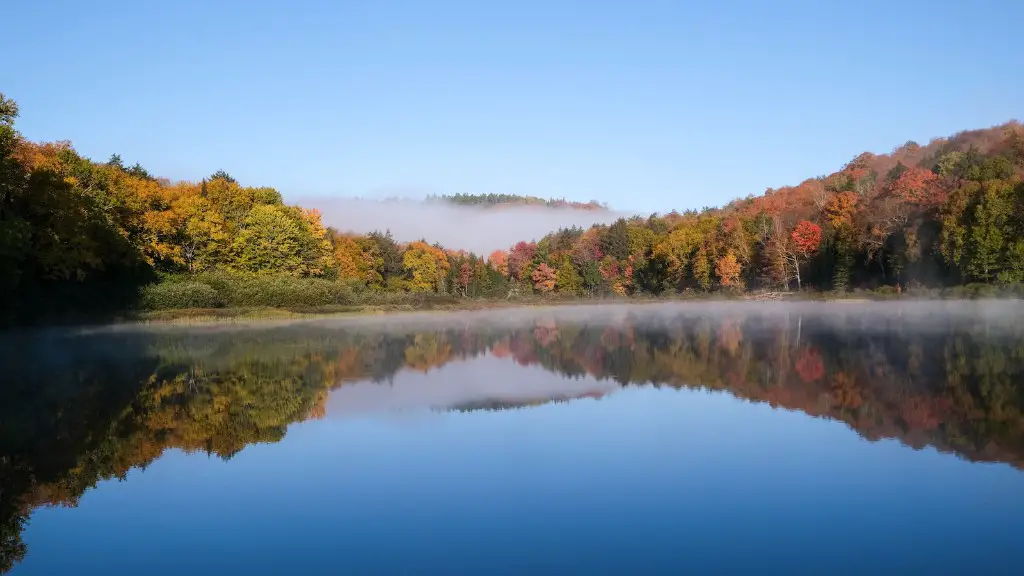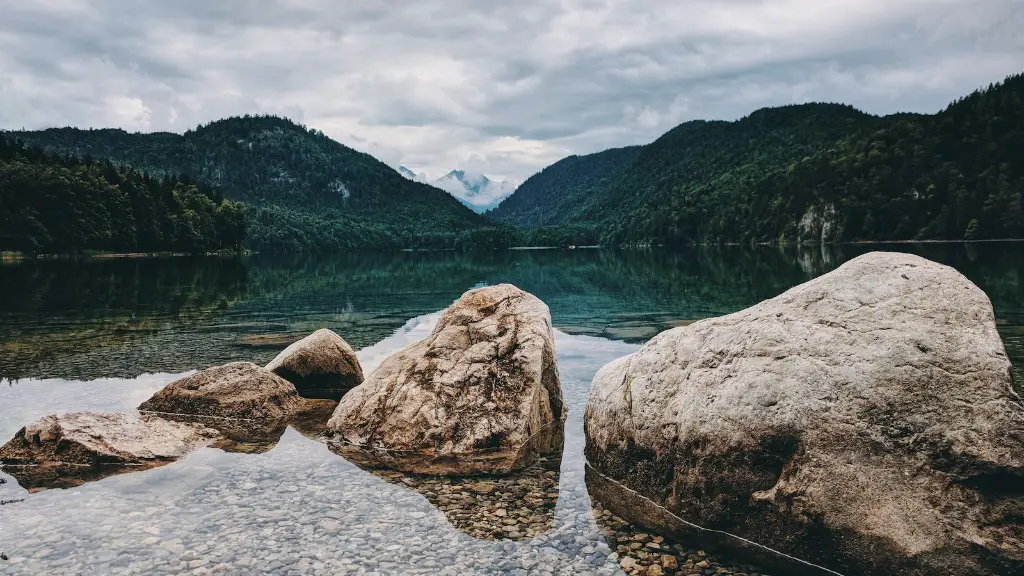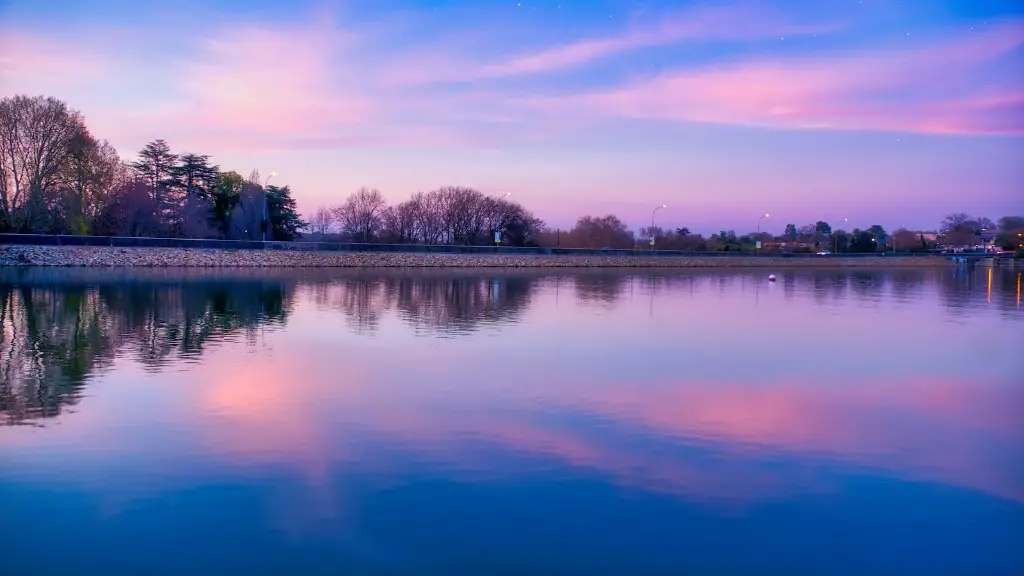What is Lake Malawi?
Lake Malawi, also called Lake Nyasa, is the third-largest lake on the African continent and home to more than 500 species of cichlid fish, making it one of the most biodiverse habitats in the world. Located in East Africa, it covers an area of nearly 30,000 square kilometres between the countries of Malawi, Mozambique and Tanzania. The lake has an average depth of about 300 metres and a maximum depth of up to 705 metres, and it is the deepest lake in Africa. It is also the ninth-largest lake in the world.
Can You Swim In Lake Malawi?
Swimming in Lake Malawi is possible, however, it is not recommended by health authorities due to the quality of the water. The lake is known to have high levels of pollution, due to the close proximity of numerous rivers and streams carrying contaminants and sediment. Apart from this, skin diseases can be contracted from swimming in the lake- waterborne diseases such as schistosomiasis (bilharzia) can be a risk for those who swim. This is a parasitic disease that affects the liver, lungs and bladder and can be fatal if not treated properly.
On the other hand, despite all the mentioned health risks, swimming in Lake Malawi is still a popular activity due to the stunning beauty of its crystal-clear waters. The lake has an impressive biodiversity and is home to numerous species of colourful fish, making it a great spot for snorkelling and diving. It is also a great spot for canoeing, kayaking and water-skiing.
Historical and Cultural Significance of Lake Malawi
Lake Malawi is of immense cultural and historic importance to the African people. It has been a source of food and livelihood for countless generations and is home to several indigenous ethnic groups. In addition, there are a number of historical sites on the lake, including the ruins of ancient settlements and churches from the colonial era.
The lake is also an important cultural milestone in the history of modern Africa, as it marks the boundary between Mozambique and Malawi and has been a symbol of unity between the two countries. It also serves as a gathering point for migrating birds and as a destination for tourism, with many hotels and resorts situated on its shores.
Safety Considerations When Swimming In Lake Malawi
For those looking to take the plunge and swim in Lake Malawi, it is important to consider a few important safety tips in order to have a safe and enjoyable time. First of all, it is important to be aware of the risks and act accordingly- wear appropriate gear such as a life jacket, and avoid swimming in areas with high levels of pollution or low visibility. It is also important to avoid swimming alone and keep an eye on changing weather conditions.
Lastly, it is also recommended to be aware of the lake’s wildlife, as there are several species of crocodiles, hippopotamuses, and even sharks that could be present in its waters. As Lake Malawi is an important habitat for these species, it is important to stay aware of one’s surroundings and be mindful of the wildlife that inhabits it in order to avoid potential encounters.
Fishing in Lake Malawi
For anglers, fishing in Lake Malawi can prove to be an exciting experience, as it is home to many species of freshwater fish, including catfish, carp, tigerfish, and of course its famous cichlids. Fishing is strictly regulated in the lake in order to protect its biodiversity, and a permit is required for both local and foreign anglers.
Lake Malawi is also a major supplier of prawns, crabs and other sea creatures. The majority of commercial fishing is conducted by trawlers, due to the lake’s deep waters. Sport fishing is also permitted, however, it is important to note that the lake is closed to fishing during the rainy season (from late October to late April).
Conservation of Lake Malawi
The conservation of Lake Malawi is a growing concern as the lake faces numerous threats including deforestation, overfishing, pollution, climate change and sedimentation. As a response to these issues, the Governments of Malawi, Mozambique and Tanzania have implemented several initiatives to protect the lake’s biodiversity, such as imposing strict fishing regulations and creating protected areas.
In addition, several organisations have been created in order to address the lake’s conservation issues. For example, The Great Lakes Fisheries Commission is a non-profit organisation that works to manage and protect the lake’s resources, while the Lake Malawi National Park is a protected area that focuses on conserving the lake’s biodiversity.
Tourism and Accommodation in Lake Malawi
Lake Malawi is a popular tourist destination, as it offers a diverse range of activities for visitors. From exploring the lake’s unique biodiversity, to kayaking and snorkelling, the lake is a great spot to escape and have an unforgettable experience.
Accommodation in Lake Malawi ranges from camping sites to luxury resorts. For those looking for a more upmarket experience, there are several 5 star resorts located on the lake’s shores such as the Kaya Mawa in Malawi and the Peacock Hotel in Mozambique. There are also several boutique hotels and eco-lodges, with some located within the Lake Malawi National Park.
Responsible Travel in Lake Malawi
It is important for travelers to Lake Malawi to act responsibly and to respect the local people and environment. The lake is an important source of food and livelihood for many of the surrounding communities, and thus should be treated with the utmost respect.
Travelers should be mindful of their waste and consumption, and look for opportunities to support the local communities and businesses. This could include buying souvenirs made locally or participating in community-based tourism initiatives such as homestays and volunteering programs.
Conclusion
In conclusion, Lake Malawi is a unique and stunning body of water that is a vital source of food and livelihood for many of the surrounding communities. While swimming in the lake is possible, it is important to be aware of the associated risks. The lake’s wildlife and biodiversity should be respected, and responsible travel and tourism practices should be followed when exploring its shores.


